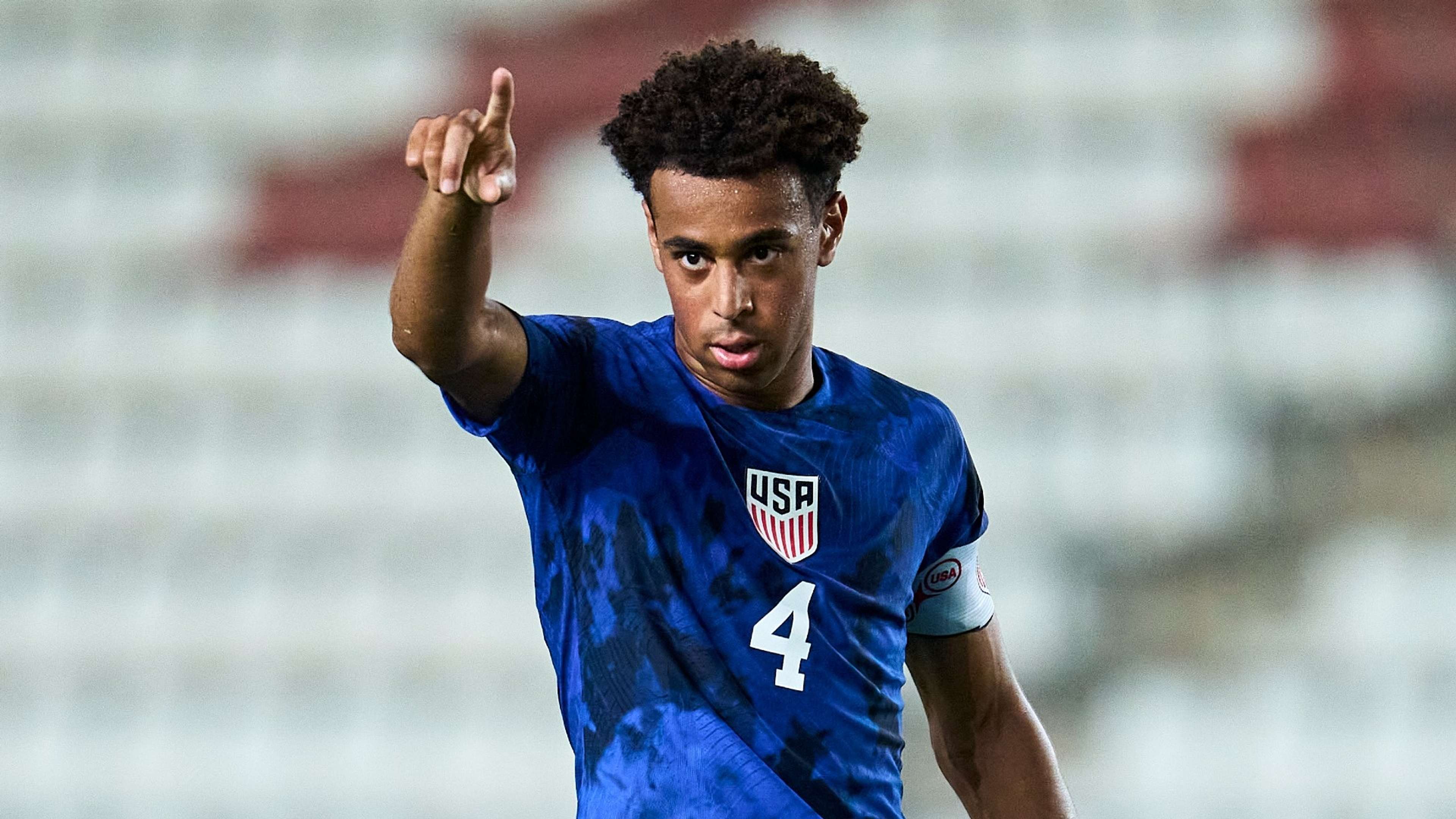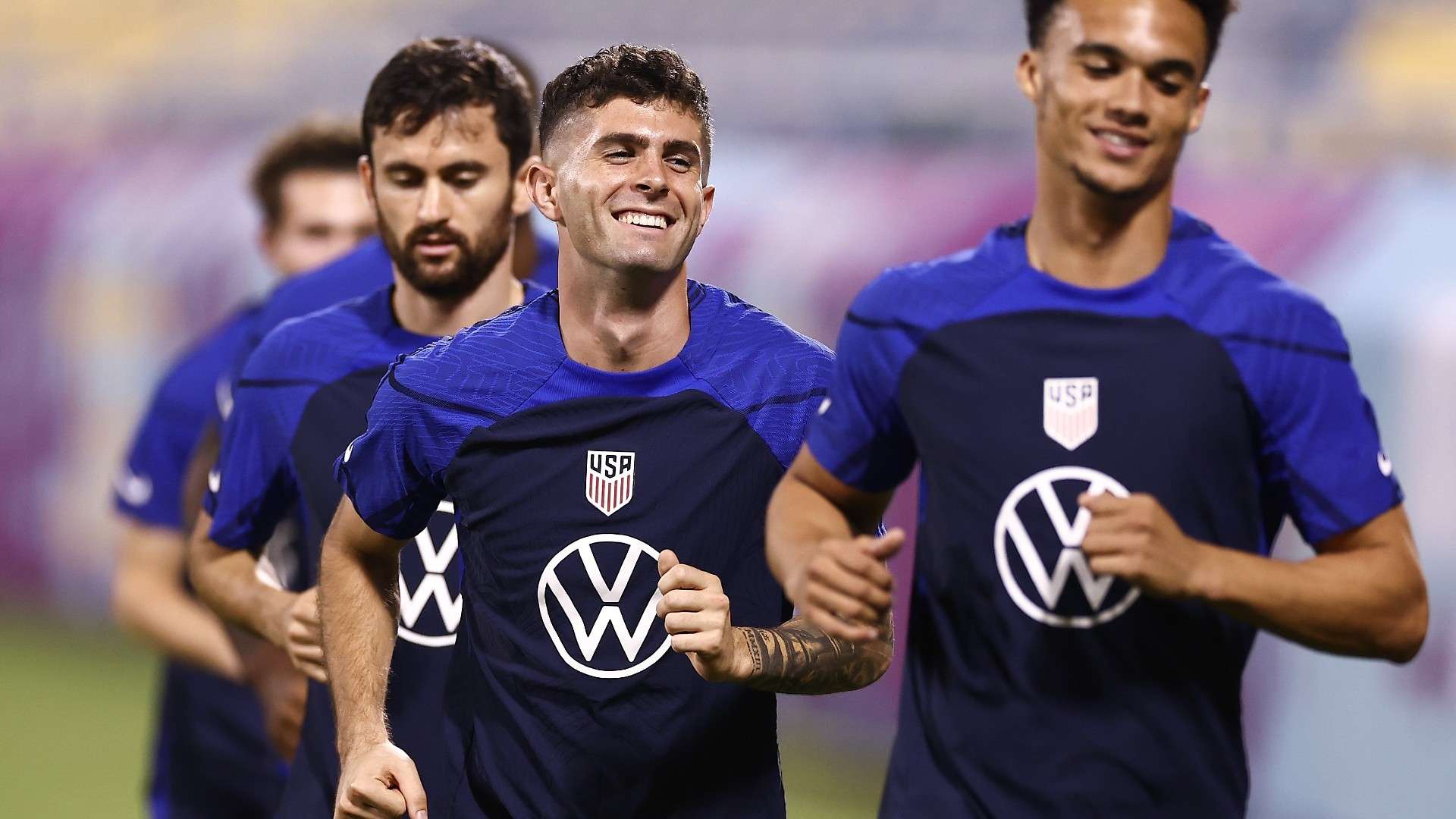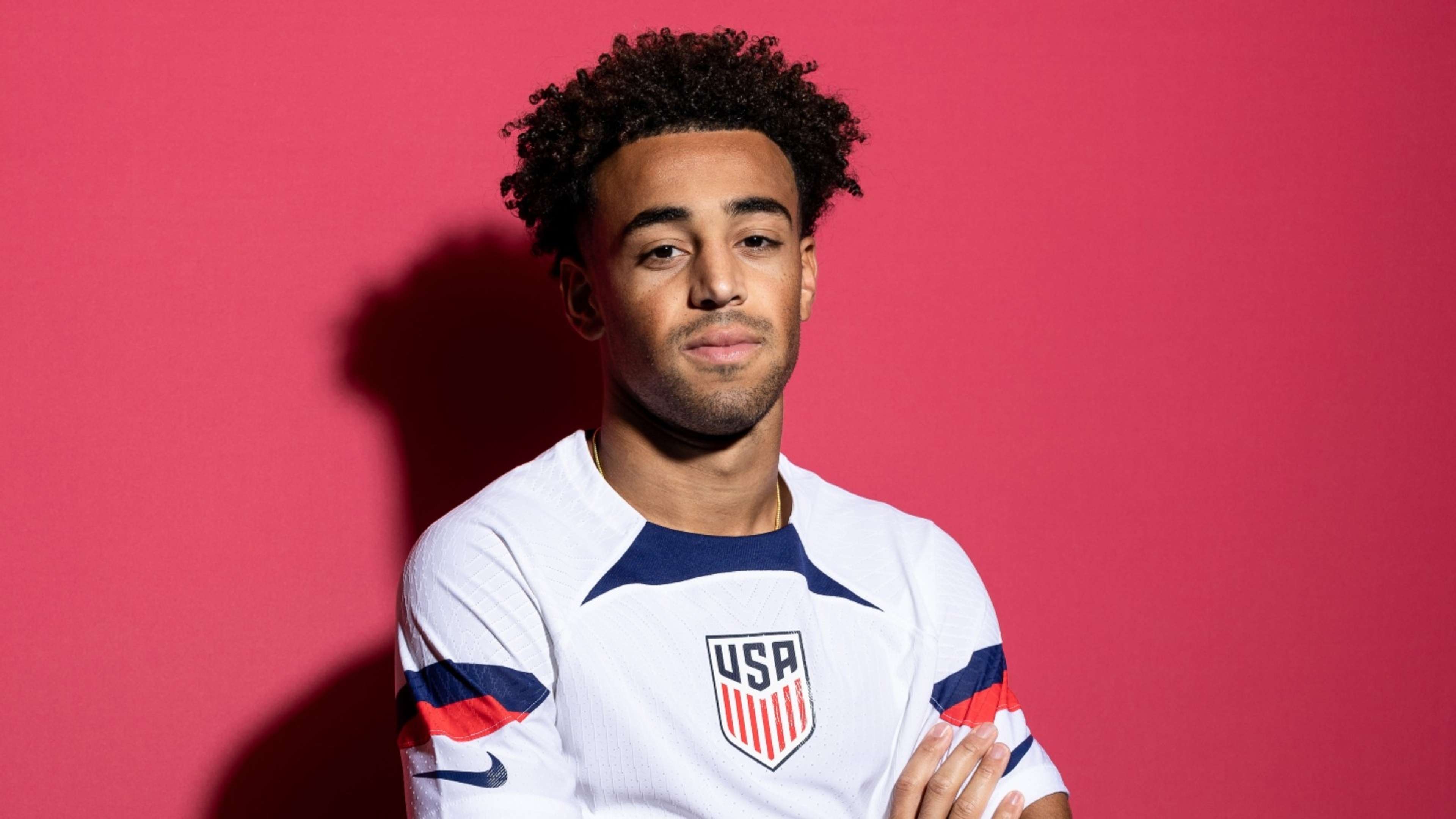After rotating the role for several years, the United States men's national team's captaincy was put to a vote shortly before the start of the World Cup. Each player had a say in determining what the USMNT captaincy would look like after a leadership council shared the duties throughout World Cup qualifying.
In the end, the players settled on a captain: Tyler Adams. And, in the end, the players got it right.
"Tyler is a guy that's just mature beyond his years and you notice it from the minute you start talking to him," said USMNT coach Gregg Berhalter. "I can go on and on about the strengths of Tyler, but I think the thing about him is his humility.
"He's a guy that the team-mates know exactly what they're going to get from him. They know that he's going to go out on the field and compete. They know that he's going to be thinking about the game. They know that he's going to be into the details of the game. He's not just a competitor. He's also a strategist. And I think that helps the group because he calms people down and he's a guy that people get behind."
The U.S. couldn't have selected a better representative than Adams, who will be the youngest captain at the World Cup. The only other captain under age 30? Harry Kane, which is pretty decent company.
Appointing such a young captain is unusual, but so is this USMNT, and Adams embodies everything that this team has built itself on.
The Leeds United star is tenacious, hungry and energetic. He also has that little bit of swagger and bite that prevents anyone from ever pushing him, or his team-mates, around, while he is willing to hold others accountable.
That last part even applies to himself. After predicting the USMNT would cruise through the first set of World Cup qualifiers, which they certainly did not, Adams was quick to admit that, at the time, he was naive. It was a teachable moment and, clearly, one that stuck with him as he grew throughout the qualifying cycle.
"One thing, at the end of the day, that I always want to do is I want to be a winner," Adams said. "So first off, I'm very competitive. I want to hold the guys around me to the same standard. I don't want to lose and then have to point the finger and say 'You let me down today'. I just want to make sure that everyone's on the same page. Intensity-wise, mentality-wise, that we all buy into the same thing.
"I think I've been doing that since a young age and as much as I know my strengths, I know my weaknesses as well. And I want people to criticize me. I'm open to feedback all the time and I want to get better and improve."
So, although the USMNT's path to this point was unorthodox, the end result is ideal. Adams is very much the guy.
 Getty
GettyIn the years leading up to the World Cup, the USMNT has essentially had captains by a committee. Gregg Berhalter has employed a leadership council featuring a handful of players selected to represent their team-mates in more ways than one.
From rotating the captain's armband to working with the coaching staff to determine training times, the council has played a big part in defining the USMNT and its culture. It's included players like Adams, Aaron Long, Christian Pulisic, Weston McKennie, Walker Zimmerman and Tim Ream; all players that have played a key role in shaping what this USMNT looks and feels like, both on and off the field.
It's an unusual setup that saw a group of 20-somethings play a key role in defining their team. Most national team coaches would never set up such a system. As one Brazilian journalist pointed out, "A leadership council would never be allowed in Brazil."
For the U.S., though, it worked. It gave players a sense of ownership of their team while establishing a line of communication between key stars and their head coach. That goes a long way to building trust throughout a player pool.
But, ahead of the World Cup, the decision was made to narrow it down to one captain.
"When we first came into the group, we were nowhere near ready to have a single leader within the team," Adams said. "I was 19 or 20 years old, and I've learned a lot. I've played a lot more games and had experiences and learned from everyone in our environment. Thankfully now, I've obviously grown in a lot of different ways, and so has everyone else in our leadership council. We've all learned from each other, picked up ideas from each other. We feel free to express ourselves in the group, which is good."
In some ways, waiting this long frees Adams of the responsibility of it all, even if it all is a bit odd to announce it just one day before kickstarting your World Cup run. Adams hasn't had to change his approach to anything because, by and large, nothing has really changed. Adams has always been a leader for this team, with or without an armband over his jersey. You can bet his mindset won't change in the slightest.
As for those that were skipped over, the same thought process will apply. Adams wearing the armband doesn't diminish the role of say, Pulisic, despite the fact that 'Captain America' won't actually be America's captain.
 Getty Images
Getty ImagesIf anything, Pulisic will likely feel free of the weight of it all, which will probably seem like a relief for a player that is under more pressure than perhaps any previous American player at a major tournament. The Chelsea star can let Adams be the forward-facing leader, while Pulisic can lead in the way he's arguably best at: quietly and with the ball at his feet.
The same thought process can apply to McKennie, who can continue to keep the mood light, or Ream, who can fulfill his role as this team's wily veteran. All of those mentioned have roles that will continue on, even if Adams is the one that shakes hands with the referee before the coin toss. The leadership council isn't going anywhere.
Adams has the ceremonial honor and, make no mistake, it is an honor. The 23-year-old midfielder will lead his country into the World Cup, and he'll do it alongside, not in front of, the rest of his team-mates.
